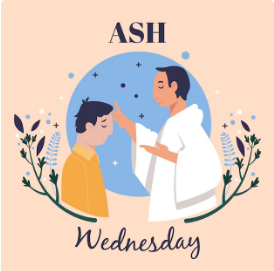Forgiveness is often viewed as a moral virtue, a way to resolve conflicts, or a pathway to peace. However, its benefits extend far beyond these realms, encompassing profound impacts on mental and emotional well-being. Understanding the healing benefits of forgiveness can empower individuals to pursue a healthier, happier life, free from the burdens of resentment and anger. This article delves into how forgiveness contributes to mental health and emotional healing, offering insights and practical steps to integrate forgiveness into daily life.
The Psychological Impact of Holding Onto Grudges
When individuals harbor grudges or unresolved anger, it can lead to various mental health issues, including anxiety, depression, and stress. The emotional weight of resentment often manifests in physical symptoms, such as headaches, high blood pressure, and fatigue. Holding onto negative emotions can create a cycle of negativity that influences one’s outlook on life, relationships, and overall well-being.
Conversely, forgiveness serves as a powerful antidote to this emotional turmoil. It encourages individuals to let go of harmful emotions and embrace a mindset of healing, promoting psychological resilience and emotional stability.
Benefits of Forgiveness for Mental and Emotional Well-Being
1. Reduction of Stress and Anxiety
Forgiveness has been shown to reduce stress and anxiety levels significantly. When we forgive, we release the burden of holding onto negative feelings, which can alleviate the physiological responses associated with stress. Letting go of grudges can lead to lower levels of cortisol, the stress hormone, promoting a sense of calm and relaxation.
2. Improved Mood and Emotional Health
Practicing forgiveness can enhance overall mood and emotional well-being. Studies indicate that individuals who engage in forgiveness experience lower levels of depression and higher levels of positive emotions. The act of forgiving allows individuals to focus on healing rather than dwelling on past hurts, fostering a more positive outlook on life.
3. Strengthened Relationships
Forgiveness is crucial in building and maintaining healthy relationships. When we forgive others, we open the door to communication and understanding, facilitating stronger connections. Healthy relationships provide emotional support and contribute to overall well-being, creating a network of care that enhances resilience against life’s challenges.
4. Enhanced Resilience
Forgiveness promotes resilience, allowing individuals to cope better with adversity. By letting go of past hurts, people can face new challenges with a clearer mind and a more optimistic attitude. This resilience fosters a sense of empowerment, enabling individuals to navigate life’s difficulties more effectively.
5. Increased Self-Esteem
The act of forgiving oneself is a vital component of emotional healing. When individuals learn to forgive their mistakes, they develop a healthier self-image and greater self-acceptance. This boost in self-esteem contributes to overall mental well-being, fostering a sense of worthiness and self-love.
6. Greater Emotional Freedom
Forgiveness liberates individuals from the shackles of past grievances, providing a sense of emotional freedom. By releasing negative feelings, individuals can embrace their emotions fully, allowing for a more authentic and fulfilling life experience. This emotional liberation can lead to increased creativity, motivation, and overall happiness.
Practical Steps to Cultivate Forgiveness
1. Acknowledge Your Feelings
The first step towards forgiveness is to recognize and acknowledge your feelings. Understand that it’s okay to feel hurt, angry, or betrayed. Allow yourself to experience these emotions without judgment.
2. Reflect on the Situation
Take time to reflect on the situation that caused you pain. Consider the perspectives of others involved and the circumstances that may have influenced their actions. This reflection can foster empathy and understanding.
3. Choose to Forgive
Forgiveness is an active choice. Commit to letting go of the negative emotions that hold you back. Understand that forgiving someone does not excuse their behavior; it simply allows you to release the hold that resentment has on your life.
4. Communicate Your Feelings
If appropriate, express your feelings to the person who hurt you. This can be done through a conversation or a letter. Communicating your emotions can lead to healing and mutual understanding.
5. Practice Self-Forgiveness
Don’t forget to forgive yourself. Acknowledge your mistakes and treat yourself with kindness. Reflect on what you’ve learned from the experience, and recognize that everyone makes mistakes.
6. Seek Support
Surround yourself with supportive individuals who encourage your journey towards forgiveness. Sharing your experiences with trusted friends or family members can provide comfort and guidance.
7. Engage in Mindfulness Practices
Mindfulness and meditation can help cultivate a forgiving mindset. Engaging in these practices allows you to become more aware of your thoughts and feelings, enabling you to approach forgiveness with a clearer perspective.
Conclusion
The healing benefits of forgiveness extend far beyond the act itself; they encompass significant improvements in mental and emotional well-being. By choosing to forgive, individuals can release the burdens of resentment, enhance their emotional health, and foster more meaningful relationships. Embracing forgiveness as a daily practice can lead to a more fulfilling, peaceful life, allowing us to navigate challenges with grace and resilience. Remember, forgiveness is not just a gift to others; it is a powerful gift to yourself.

